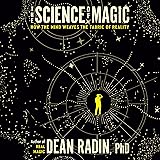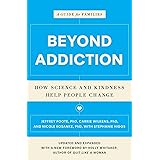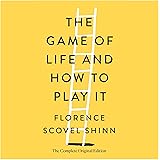The accompanying video features Jordan Peterson and Jocko Willink, delving into profound principles for personal transformation. They explore the vital importance of radical honesty and embracing uncomfortable truths. This discussion offers a roadmap for genuine self-improvement. It challenges individuals to confront their deepest inadequacies. The path to a meaningful existence begins with self-confrontation. This article expands upon their compelling insights. It provides practical strategies for cultivating an authentic and purposeful life.
Jordan Peterson highlights the courage needed to ask “stupid questions.” He states that 80% of people in a crowd often share the same unspoken query. Asking such questions removes ignorance. It enables rapid learning. He suggests a powerful self-inquiry: “What’s one thing I’m doing wrong that I know I’m doing wrong, that I could fix, that I would fix?” This exercise demands desperation and sincerity. It promises a necessary, though perhaps unwelcome, answer. True growth stems from confronting these known deficiencies. This leads to unbelievably rapid self-improvement.
Embracing Radical Honesty and Self-Correction
Confronting personal flaws is a demanding but essential process. Many find this self-reflection uncomfortable. Yet, it forms the bedrock of authentic personal transformation. Acknowledging one’s “stupid things” allows for precise micro-improvements. These small, deliberate changes accumulate significantly over time. Great individuals demonstrate brutal honesty with themselves and others. This commitment to truth fosters extraordinarily adventurous lives. Self-deception, in contrast, leads to bitterness and resentment. It prevents genuine engagement with life’s challenges. The journey of self-correction requires immense humility.
Unmasking the Manipulative Persona
Peterson critiques the manipulative use of language and the adoption of false personas. Speaking only to impress others means “something else” is talking, not your true self. This manipulative spirit can possess an individual. It transforms them into an instrumental being. Students who write what professors want to hear exemplify this. They gain a grade, but it’s a “false you” that achieves it. Living this way means never truly possessing one’s own life. It leads down a pathway to bitterness and contempt. In contrast, genuine expression aligns with personal integrity.
Building a persona for social acceptance is understandable. Chris Williamson touches upon this prevalence in the social media era. However, it is no substitute for authentic self-expression. Such roles can mask deep inadequacies. They prevent true self-discovery. Living truthfully means coming to terms with one’s imperfections. This can be a painful process. Yet, it unlocks the “adventure of your life.” Without truth, one acquiesces to a role. This robs life of its inherent meaning. The truest adventure emerges from authentic speech and action.
The Indispensable Power of Verbal Competence
A central theme is the development of articulate communication. Peterson asserts that there is “no more exceptional form of the capacity to be dangerous than to be articulate.” This competence is a moral endeavor. It involves mastering one’s own tongue. Verbal prowess grants authority and influence. It sharpens thinking and argument formulation. Speaking what you believe to be true, regardless of outcome, is a profound act of faith. This commitment yields the best possible outcomes, even when difficult. Being articulate empowers individuals to navigate the world effectively. It allows for clear expression of aims and strategies.
The Discipline of Reading and Writing
Reading offers a path to learn without enduring hard knocks. Jocko Willink highlights the exponential increase in capability from seeing something once. Reading allows assimilation of vast knowledge. Colonel David Hackworth’s book, About Face, provided invaluable lessons to Jocko on deployment. Peterson emphasizes “saturating” oneself with the distilled wisdom of others. He recounts spending six months reading “Neuropsychology of Anxiety” by Jeffrey Gray. This allowed him to gain thirty years of insight. Books offer a profoundly disruptive yet useful way to “try on other people” and benefit from their entire lives’ work.
Writing is formalized thinking, a core skill for intellectual development. It requires defining a problem that genuinely grips you. This initial engagement prevents false starts. Extensive reading then provides content related to the problem. The process involves summarizing, resolving contradictions, and elegant formulation. Precise word choice, sentence structure, and paragraph sequencing build a coherent argument. This rigorous intellectual exercise integrates personality at its highest level. It hones tools of thought and communication. Learning to write effectively transforms individuals into formidable thinkers and communicators.
Peterson argues that universities often fail to explain *why* students should write. The true purpose is to learn thinking. Thinking enables effective action in the world. It helps one win crucial battles. The ability to think, speak, and write makes an individual “absolutely deadly.” It is the most powerful weapon one can possess. He posits that if one’s time is worth $50 an hour, wasting time amounts to $2,000 weekly. This equates to $100,000 annually. Investing time in reading and writing yields compounding benefits throughout life. Developing this skill is unbelievably practical.
Embracing Struggle and Purposeful Aspiration
Humans are “built to walk uphill.” This metaphor illustrates our inherent need for challenge and growth. Reaching a pinnacle provides temporary satisfaction. However, the true desire is for “a higher hill in the distance.” This constant pursuit of betterment derives value from the struggle itself. Almost all positive emotion, especially enthusiasm, is tied to a goal. Peterson advises setting goals that are unattainable in an absolute sense. This ensures continuous movement towards something “sublime and better.” This pursuit puts life together, making it richer and more abundant. The “Mai Tais on the beach” vision of relaxation is fleeting and ultimately leads to depression and aimlessness. This observation is supported by phenomena like “gold medal depression.” This condition affects Olympians post-achievement, highlighting the need for ongoing purpose. We are here to live, not to sleep.
The Interplay of Aspiration and Responsibility
Aspiration and responsibility are tightly linked concepts. A human must aspire to something; inaction leads to demise. An aim provides direction for action. This aim should be worthwhile. People positively judge those who take responsibility for themselves, their families, and communities. This represents a meaningful aim. Without a hierarchy of values, life lacks meaning. Criticizing hierarchies, therefore, destroys aspiration itself. Humans are built for struggle and to voluntarily carry heavy burdens. This process allows individuals to “put yourself together” and discover their capabilities. Your life is an “all-in game,” so it better be worthwhile.
Jordan Peterson urges individuals to not underestimate their own existence. Your personal “fate” and “adventure” are enough. They are more than you can ever fully realize. This belief grants intrinsic dignity to every individual. Even in dire circumstances, opportunities to improve abound. A “radical embrace” of life, binding oneself tightly to it, reveals its true nature. The continuous uphill climb provides meaning and value. There is nothing that makes you more formidable than verbal competence. Being able to articulate, think, and marshal arguments is key. Committing to a direction unifies disparate components of the self. It fosters a powerful, singular focus. This commitment is central to a fulfilling personal transformation.








